
Von Tencha zu Matcha
Wie wird die Tencha Auslese zu feinem Matcha Pulver gemahlen? Ein Blick hinter die Kulissen
12 produits
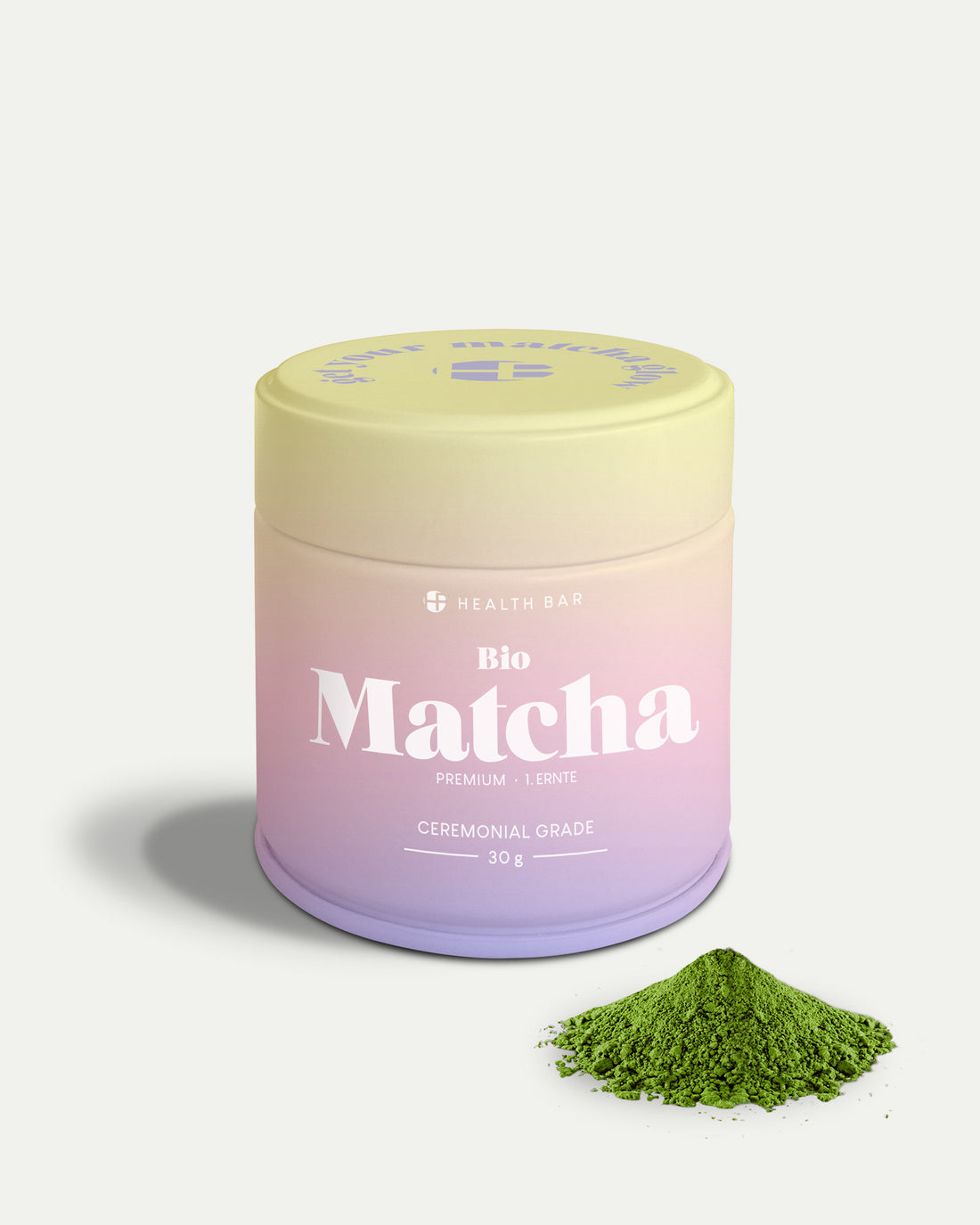

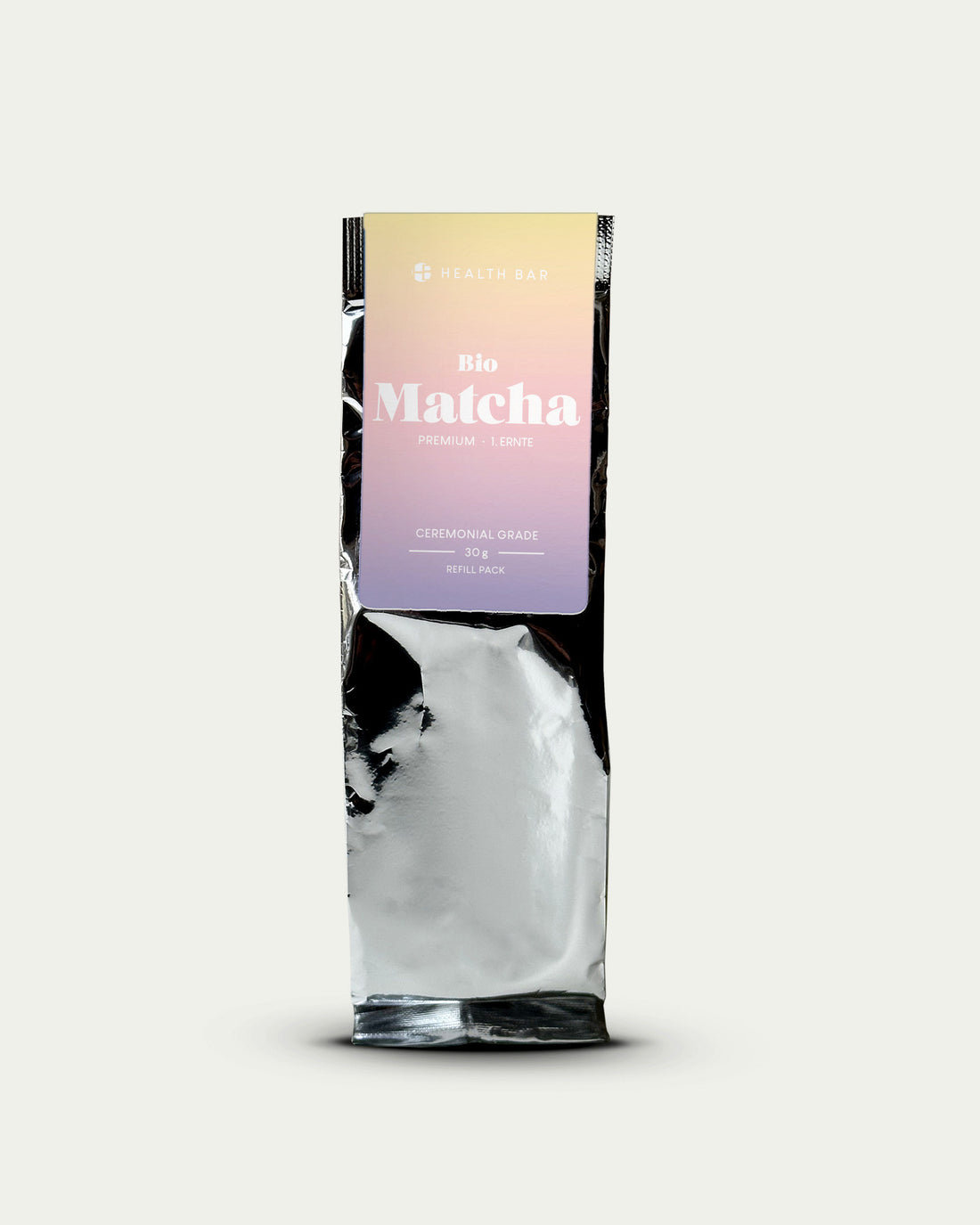




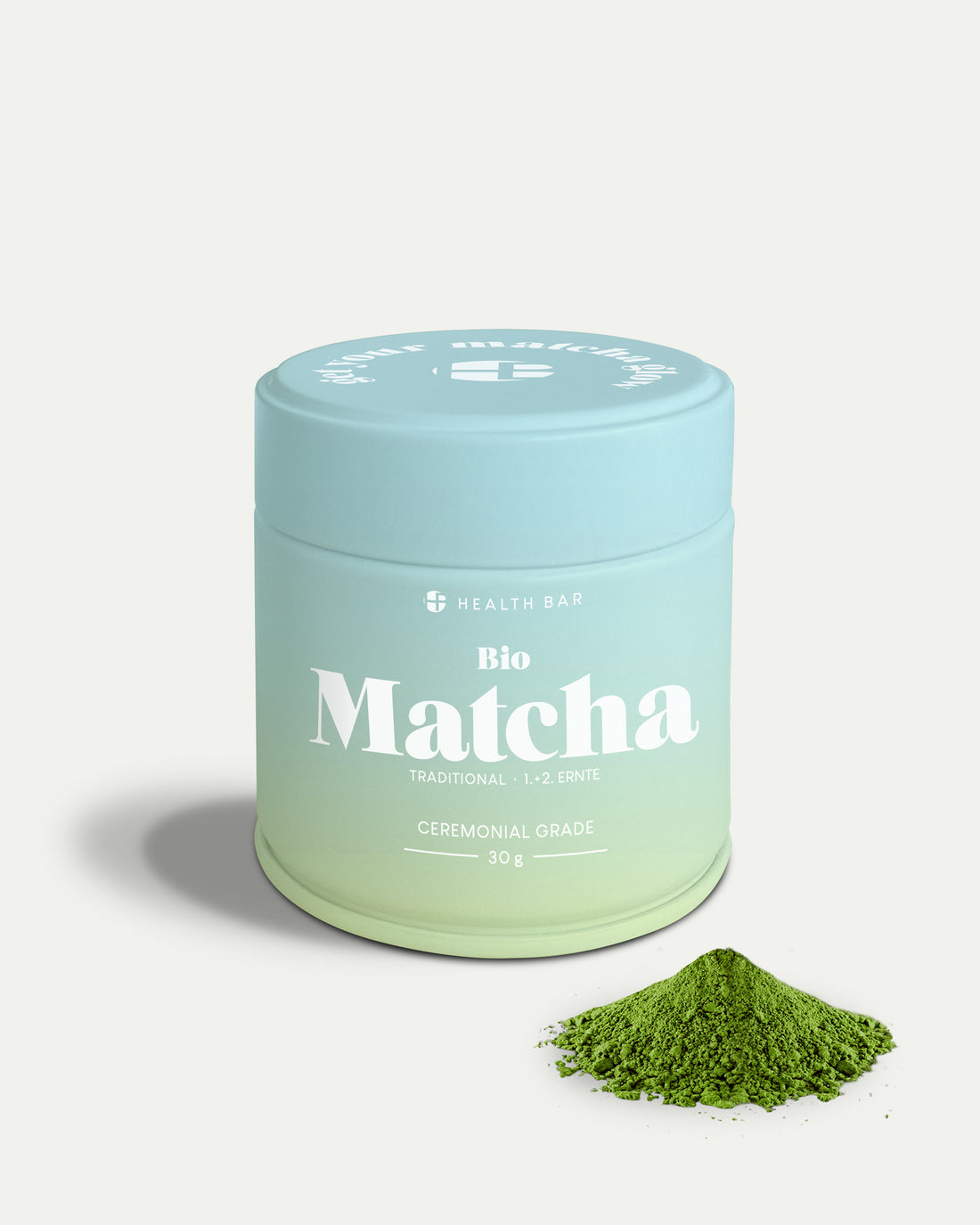
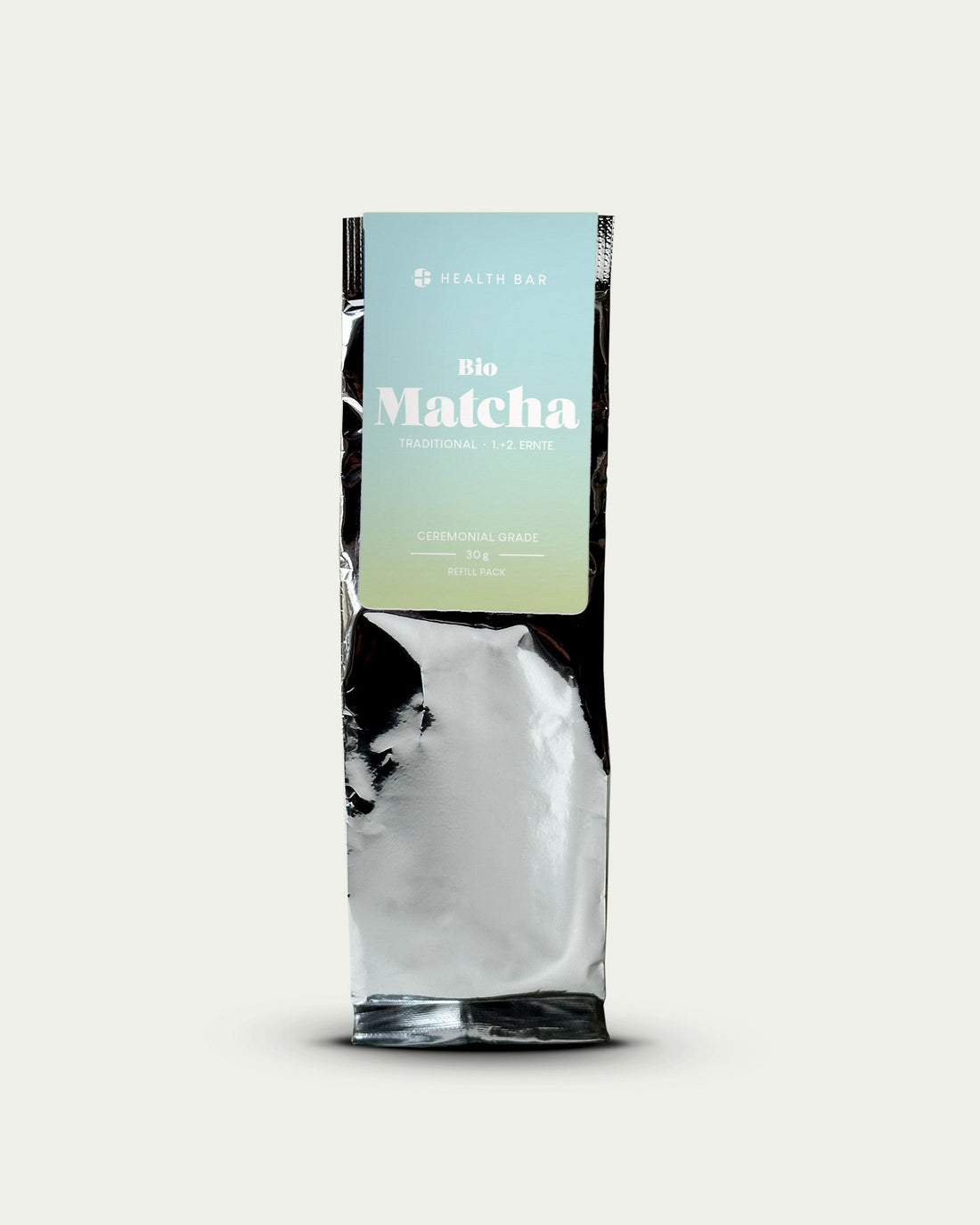











Organic enjoyment from East Asia
Ceremonial Matcha
The Premium Matcha tea is characterized by its gentle, full-bodied aroma. It is obtained from the leaves of the first harvest (spring). These leaves are younger and more delicate, which leads to a finer taste. Ceremonial Matcha is considered particularly high quality and is often more expensive than traditional Matcha tea.
Traditional Matcha
Traditional Matcha is made from leaves of the first and second harvest. This mixture can lead to a somewhat more intense taste. The taste of traditional Matcha can be perceived as more robust or stronger, but it keeps the characteristic sweetness and the slightly bitter taste of the Matcha tea.
On the one hand, good for you to the other.
We'll tell you what the trend food is that the world has conquered in the storm: Matcha is made of fine powder, which is obtained from the dried leaves of the green tea. The name itself comes from Japanese, 抹茶(Ma cha), and literally means "ground tea". The Japanese themselves love and have long used it for their traditional tea ceremony. In the meantime, Matcha is not only drunk, but also eaten - be it as a cake, Matcha chocolate Or ice. Because with its delicate, loving to refreshing bitter taste, the powder convinces as a solo and as a team player alike. Sweet, creamy, fluffy; A lot harmonizes with Matcha tea.
Matcha ingredients
Like tea in general, Matcha in particular is a wonderful alternative to other drinks. In contrast to energy drinks and lemonade Reiner Matcha sugar -free and completely natural- provided you only prepare it with water. The delicious powder can do a lot:
Without the caffeine kick in the morning you are not available? The afternoon depth makes you look regularly during work? Coffee is often the first means of choice when we want to wake up - but too much of it is not good for the body. In addition, the bitter bean does not taste every palate. Nevertheless, you don't have to do without all pick -me -ups: Try it with Matcha instead of coffee! The gentle taste of our premium matcha powder makes even sensitive tastes happy. The caffeine contained, sometimes referred to as tea, can give you a similar energy kick as coffee. The green tea powder is a bit gentle to you - a cup that you from about a teaspoon of Matcha win, contains around 70 mg of caffeine. Coffee is between 80 and 130 mg in the same amount.
Share information about your brand with your Customers. Describe A Product, Make Announcements, Or Welcome Customers to your Store.
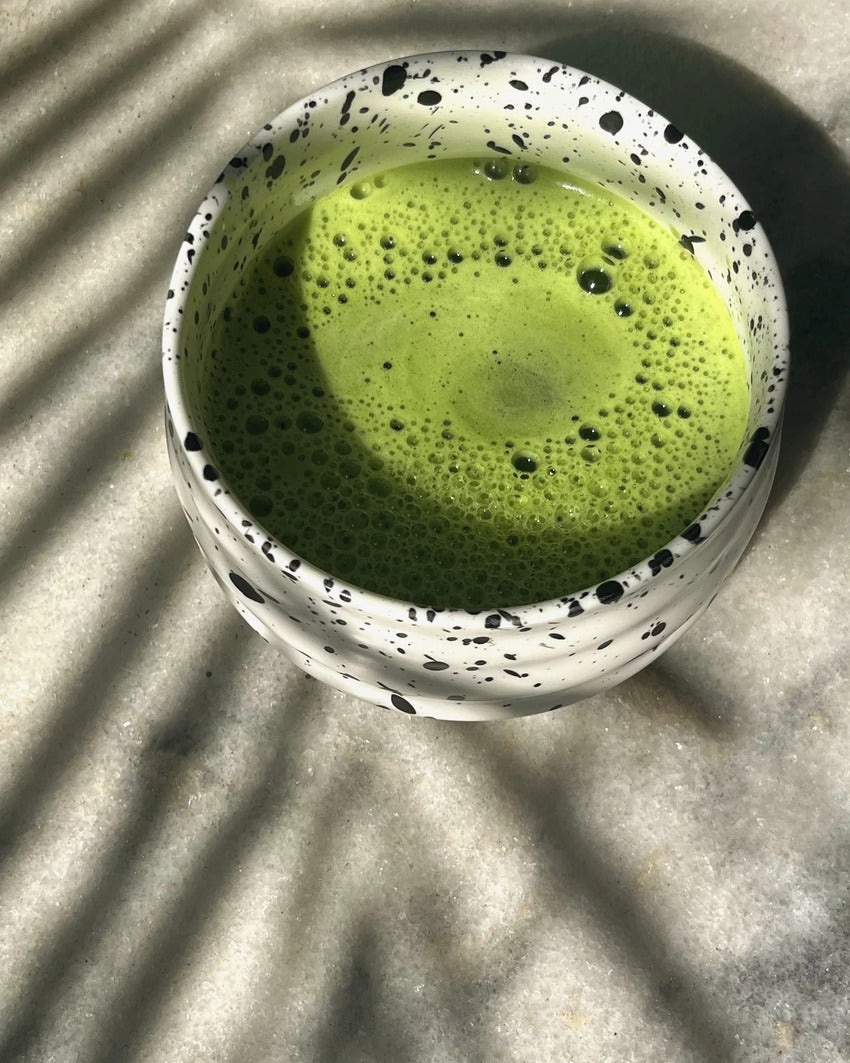
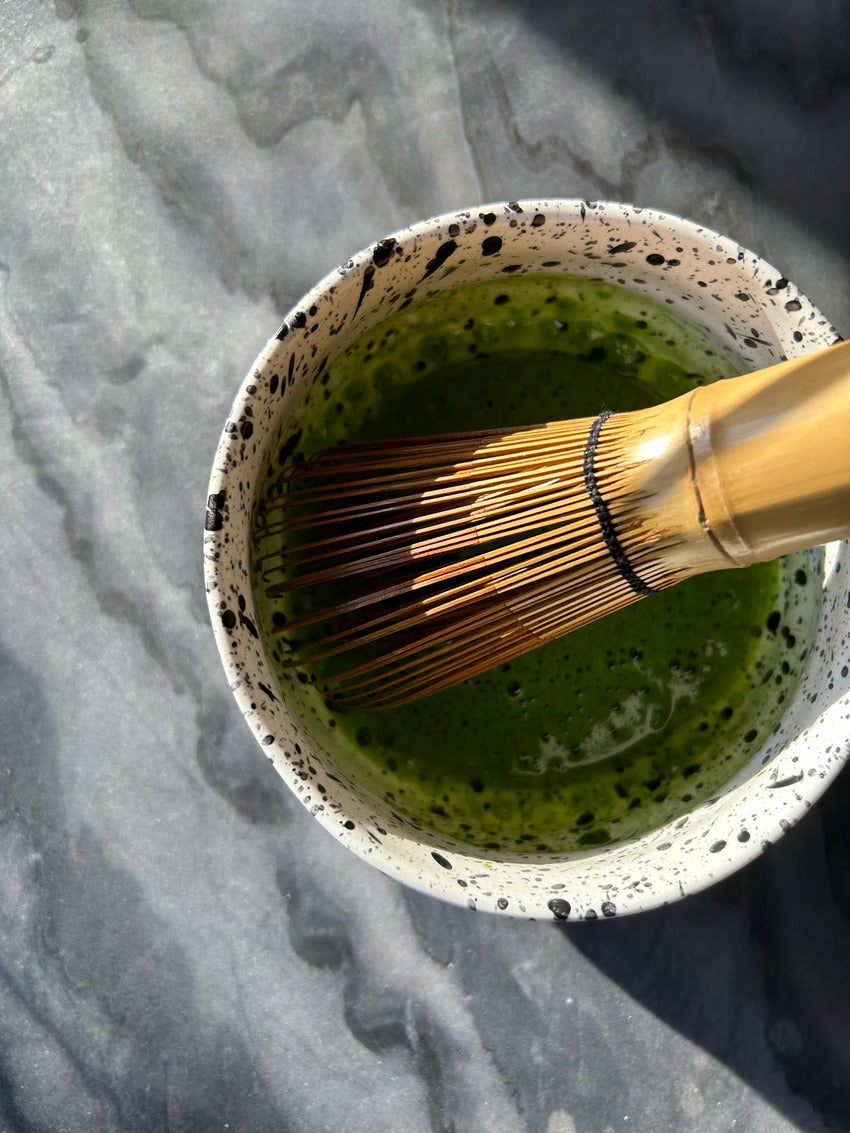
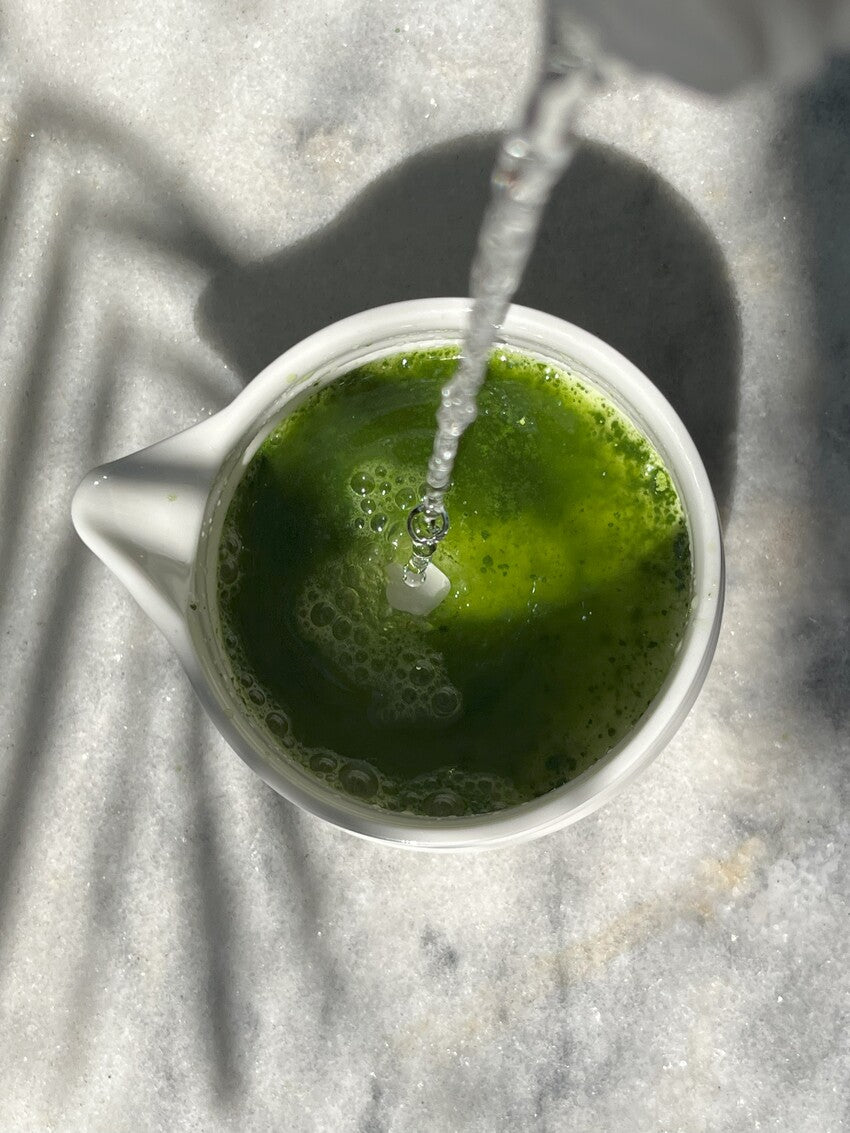

The big difference to conventional tea is that Matcha is not poured and must pull. There are no parts of the plant. Instead, you mix water with the powder. So you drink the tea leaf in full and take All valuable ingredients on. It is up to you whether you touch your Matcha ceremonial or with modern utensils of western cuisine! We present both paths below. We recommend ours for the optimal preparation of Matcha tea Matcha set.
Matcha Green Tea: The Traditional Way
If you want to enjoy your Matcha at most traditionally, you need the right one Matcha equipment, as it is also used in Japanese Matcha preparation:
Heat the calm water as much as possible up to 80 degrees. Put some Matcha into the bowl with the bamboo spoon. Pour hot water, but: First of all, only so much that the tea powder mixes into a paste to avoid lumps. If you have stirred the paste properly, pour the remaining water into the Matcha shell And use the bamboo brooms to mix the paste and water and crash on frothy.
Matcha Green Tea: The Modern Way
Cup, teaspoon and milk frother Most of us already have at home. You can proceed here as in a traditional way: Mix hot water and Matcha to a paste and then pour it up with more hot (or cold) water. The milk foamer stirs everything properly and ensures the delicious foam on top.
Our tip: Nevertheless, we recommend using a broom so that there is not too much foam. Mixing with the chase is also part of the ritual and has something meditative.
Give to heart's content soy milk, rice syrup, ice cubes Or add completely different ingredients! Do you need inspiration or want your Matcha as Matcha latte or Iced Matcha Latte enjoy? Then take a look into our steadily growing Recipe collection.
If the pack is unopened, it lasts up to one or one and a half years from the purchase date. It is best to use over -broken Matcha within 4 to 6 months.
Keep your Matcha-Teepulver light and air-protected in a cool place, for example in a can in the fridge
Absolutely pure organic matcha from high-quality Tencha leaves you get from us for 60 euros per 100 grams.
Of course, this depends on your taste, but generally the following applies: Tencha is a real favorite among tea fans - Matcha from this green quality tea tastes particularly mild.
There are different degrees of Matcha, which depending on the quality
and can vary the purpose. Here are some of the most common
Matcha grades:
It is important to note that the names and
Quality levels can vary depending on the manufacturer. It's worth it
Read product descriptions and try out different types of matcha,
To get the most suitable for your needs
find.
Premium Matcha: This Matcha tea is characterized by its
Gentle, full -bodied aroma. It becomes from the leaves of the first harvest
(Spring) won. These leaves are younger and more delicate, which for one
Fine taste. Premium Matcha is particularly high quality
viewed and is often more expensive.
Traditional Matcha: In contrast, traditional Matcha
From a mixture of leaves from the first and second harvest
made. This mixture can lead to a somewhat more intense taste,
but without becoming bitter. The taste of traditional Matcha can be
are perceived more robust or stronger, but it still retains the
Characteristic sweetness and the slightly bitter taste of the Matcha tea.
The choice between Premium Matcha and Traditional
Matcha depends on personal preferences. Some people prefer them
Subtle, gentle aromas of Premium Matcha, while others the stronger
Appreciate the flavors of traditional Matcha
While you usually pour hot water for tea for tea and do not eat them, you can fully drink the leaves of the green tea at Matcha - because the powder that consists of the ground leaves dissolves in the water.
Yes, Matcha usually contains more caffeine than
Normal green tea. This is because you can do that when drinking Matcha
Consumed total ground leaf. Matcha with Ceremonial Grade Contains less
Caffeine as a different degree.
Our tea arm is a traditional company that is
has been in the family business for several generations and for some
Manufactures organic matcha for decades. The cultivation area for the Matcha tea belongs to
The best and at the same time also oldest tea growing areas of Japan: the region
Uji, located west of Osaka. The region is known for its clean water
and nutrient -rich soil, free of pesticides. This can be found on site
Suitable climate: The fog from the rivers Uji and Kizu holds the tea plants
Moist and reduces the risk of frost damage
The tea builders protect the plants with blacks
Textile or traditionally with straw in front of the sun. Solar panels are also used. This increases the proportion of chlorophyll in the leaves and makes the taste softer. The extension takes place without pesticides. Annual soil samples, as well as laboratory tests regarding the heavy metal and radiation exposure, are carried out in order to be able to deliver the best possible quality. In addition, every batch is carefully on their
Mineral property checked.
A good matcha is characterized by several characteristics,
which you can consider when selecting:
By taking these characteristics into account, you can do the
Find the best Matcha for your taste and needs. Our health
Bar Matcha meets all mentioned!
Matcha has a unique taste that is from
distinguishes other types of tea. Our Health Bar Matcha is strong and has
A pleasant sweetness.
Some people who usually don't like tea find
the taste of Matcha pleasant, especially if it is prepared correctly
and is used in drinks or dishes that you already like to like how
For example, Matcha latte, Matcha ice cream or Matcha pancakes.
However, others like the strong taste and that
vegetable grade from Matcha. If you are unsure whether Matcha
you could taste our matcha in the 10g try,
Before you get a larger amount. We also have partners across Europe
Cafés that serve our Matcha.
Our matcha is packed in cans from white sheet, not in
Aluminum doses. We carefully select this packaging to an optimal one
Solution to store Matcha.
It is important that the packaging of Matcha airtight and
It is impermeable to light to get the freshness of the product.
It is worth noting that our empty doses are versatile
are reusable. For example, they are ideal for
Storage of spices. By reuse of the cans, they carry to
Reduction of the waste and give them a second life, which both the
Nature as well as the environment.
Our Ceremonial Matcha Contains 60 mg caffeine per gram.
Our Traditional Matcha Contains 50 mg caffeine per gram
Ceremonial Matcha typically contains ** 30 to 70 milligrams of caffeine per 2 gram portion ** (such as a teaspoon), which corresponds to a normal amount that is used for the preparation of a traditional shell matcha.
Compared to other caffeinated drinks, Matcha generally contains less caffeine than a cup of coffee that contains an average of about ** 95 milligrams of caffeine **. However, the caffeine in the Matcha is balanced by the high content of ** l-theanin **, an amino acid, which has a calming effect and helps to make the caffeine thrust more gentle and long-lasting. The caffeine kick from Matcha often feels "calmer" and less hectic, which makes it a popular choice for people who are looking for a stable energy boost without the typical side effects of coffee such as nervousness or tremors.
Matcha not only offers an immediate energy food, but also promotes a long -lasting concentration and attention.

Wie wird die Tencha Auslese zu feinem Matcha Pulver gemahlen? Ein Blick hinter die Kulissen

The durability of matcha can depend on various factors, including the way it is stored. In general, matcha retains its best quality when stored in a cool, dry place away...

Matcha should be stored carefully to preserve its freshness, quality and taste. Here are some tips for proper storage: 1. airtight packaging: store matcha in airtight packaging to minimize contact...